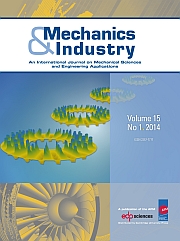Article contents
Optimal PID control of a nano-Newton CMOS-MEMS capacitive forcesensor for biomedical applications
Published online by Cambridge University Press: 22 April 2014
Abstract
This paper presents closed loop simulation of a CMOS-MEMS force sensor for biomedicalapplications employing an optimal proportional-integral-derivative controller. Since thedynamic behavior of the sensor under investigation is nonlinear the iterative feedbacktuning approach was proposed for optimal gains tuning of the proposed controller.Simulation results presented in this research illustrate that the proposed controllersuppresses the undesired in-plane vibration induced by environment or gripper 40 timesfaster than the nonlinear controller proposed in the literature. To suppress the maximuminput disturbance the maximum voltage was approximately 18 V which was less than thepull-in voltage of 30 V. The proposed controller is served to actuate two stator fingersadjacent to a rotor finger in order to provide both the attractive and repellent forcesduring manipulation. Employing the proposed mechanism not only resolves the drawbackscorresponding to the nonlinear controller presented in the literature but also improvesits performance of the closed loop system by using the complete nonlinear dynamics of theforce sensor. Also, applying complete non-linear dynamic of model improves the performanceof controller and is one of superior features of proposed PID controller in comparisonwith the classical controller presented in literature.
Information
- Type
- Research Article
- Information
- Copyright
- © AFM, EDP Sciences 2014
References
- 2
- Cited by

